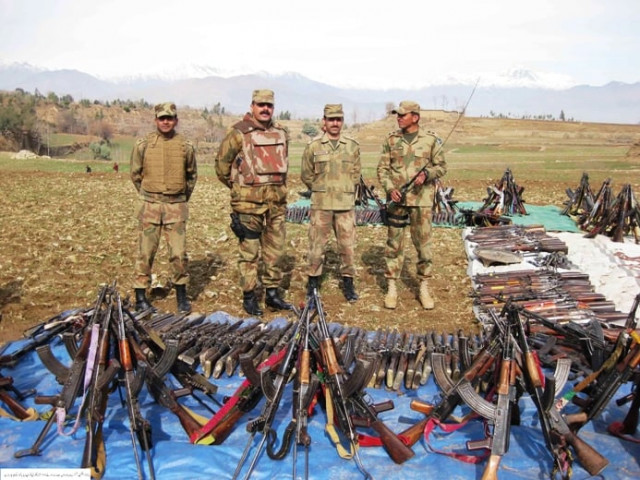North Waziristan — not yet?
That terrorists of all variety are hiding in North Waziristan is admitted on all hands in Pakistan.

North Waziristan — not yet?
That terrorists of all variety are hiding in North Waziristan is admitted on all hands in Pakistan. The security establishment says some of them — not all — can be talked to, especially the Haqqani group. The problem with this is that the Haqqanis are known to be behind the lethal Taliban thrust in Afghanistan that kills the Isaf-Nato personnel there and targets Indian presence too, especially Indian diplomats. The Haqqanis are described the world over as Pakistan’s proxy in Afghanistan and therefore an instrument of Pakistani leverage in regard to Afghanistan’s future disposition.
The Haqqanis are not Pakistanis. They are one of the many other nationalities that have been allowed to zero in on Pakistan’s sovereign territory of North Waziristan as an international force under the tutelage of al Qaeda. There was a time when the Pakistani media was clueless about what was happening there. Most analysts, together with Imran Khan, thought that foreigners living there were leftovers from the war against the Soviet Union and had become indigenised after marrying into local families. Now everyone knows that the number of terrorists runs into thousands and they keep arriving from all over the world. Above all, the head of the Tehreek-i-Taliban, Hakimullah Mehsud, is hiding there, with the blood of thousands of innocent Pakistanis on his hands.
Yes, it is perfectly legitimate on the part of the army to calculate what time would be right to take on the terrorists in North Waziristan. The army is carrying out operations in South Waziristan and Mohmand and is consolidating its grip in the areas (Malakand, Bajaur) where it has already established peace. If these ‘pacified’ areas are not completely under control, it would be dangerous to walk into North Waziristan only to have the terrorists escape from the latter to the former. But such an analysis will fall on deaf ears in an international community anxious to have us take the dragnet to where the planners and executors of terrorism are located. Why can’t Pakistan go into the details of its reluctance to attack and then seek assistance where needed?
Instead, there is mutual suspicion. The critics in the US say Pakistan has its own proxies there related to its Afghan policy and will bear a lot of suffering to maintain them. After the PNS Mehran attack, a new angle has been added to this view: That the Pakistan Army is divided between loyalists and pro-al Qaeda rebels and that the latter are increasingly successful in proving their power. This view has its dangerous corollary: That any operation against the ‘mentors’ of the rebels within the military might lead to desertions and may actually cause the personal security of the military leadership to come under threat. The death of Pakistani journalist Saleem Shahzad who revealed this internal fissure tends to support this view.
The man who reportedly executed the PNS Mehran act of terrorism was Ilyas Kashmiri, killed in a drone attack in South Waziristan on June 3. He headed an important force called Brigade 313 under the overall flag of al Qaeda and had killed many Pakistani servicemen. He was ensconced in North Waziristan and freely ordered executions of persons he didn’t like in all parts of Pakistan. His Brigade 313 is said to have a strong presence in Karachi. He was said to be an old Pakistan Army commando who changed sides after the Lal Masjid affair in 2007 and had been killing Pakistanis to satisfy his instinct of revenge. Given this state of affairs, Pakistan needs to communicate more effectively with its partners against terrorism and rely less on denial and vague commitment.
Published in The Express Tribune, June 6th, 2011.













COMMENTS
Comments are moderated and generally will be posted if they are on-topic and not abusive.
For more information, please see our Comments FAQ